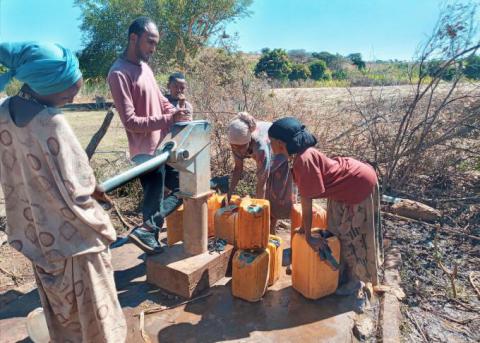Rehabilitating Hand-Dug wells to save lives

Through a fund from the Government of Canada’s Foreign Affairs, Save the Children launched a multi-sectoral emergency response project titled “Addressing health, nutrition and WASH needs of conflict-affected IDPs. This Project hosted communities and returnees in Sewena & Lagahidha woreda in Bale Zone of Oromia region, Ethiopia”. In 2021 Save the Children has been able to reach more than 625,000 persons. This included more than 349,000 children through an integrated service delivery response of activities on health, WASH, shelter, child protection, food security and nutrition, and education in emergencies.
Project Background
Under the WASH sector of this Project, the first immediate outcome was “providing adequate and safe quality of water for the vulnerable communities in Laga Hidha & Sewena woredas”. SC planned to improve access to safe water sources through rehabilitation & upgrading of community water supply sources, including hand-dug wells, shallow wells, pipe networks & springs. The SCI WaSH team conducted site identification, prioritization, feasibility & environmental impact assessment in the target woredas. They identified six kebeles with high water scarcity in Laga Hidha woreda for rehabilitation water schemes to reduce WASH-related diseases. Amongst this Chefa Medina is one of the benefited Kebele. The community there used to travel more than three kilometers to collect unprotected water for the past two years following the failure of the hand-dug well in their Kebele. Besides the distance, the community suffered from different water-borne diseases and a high prevalence of diarrhea. This was due to the poor quality of the spring water they used as a source of their drinking water for themselves and their livestock. SCI rehabilitated this hand-dug well by replacing the damaged hand pump, fixing the headwork, and disinfecting it. This enabled 3208 individuals (1353 Male, 1402 Females, 222 Boys, and 231 Girls) access to water within proximity to their village.
Zeyituna Sheik Mohammed Nur, a 45 years old mother living in Chefa Medina Kebele, says,
“It is difficult to get access to clean water, and my family had constantly suffered from different water-borne diseases. In the past, I had to wait for more than one hour at the unprotected springs, due to large queue”.
She continued saying,
“Thanks to Save the Children, for rehabilitating the hand-dug well my six children won’t suffer anymore from water-borne disease, and we will no longer have to walk a long distance to fetch water.”
 Ethiopia
Ethiopia